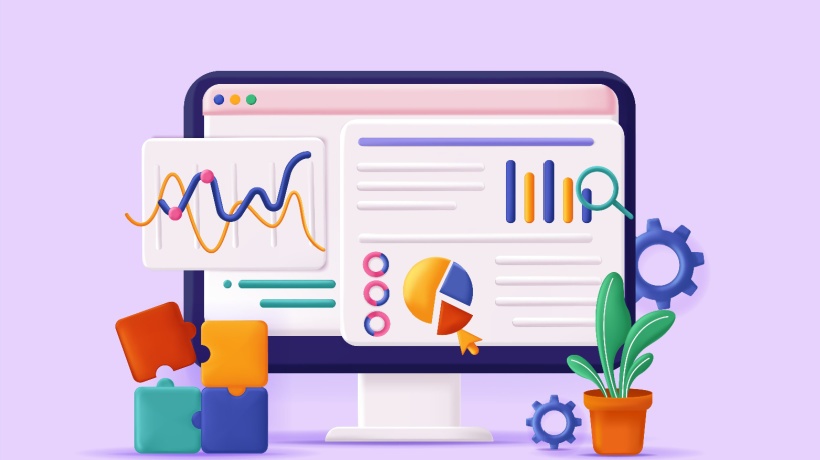Improving Learning Efficiency Through Data Analytics In eLearning
Learning Analytics has been around in pedagogy since mass education allowed trainers to gather learners’ performance data and administer attention, to setting test and exam benchmarks, analytics play a fundamental role in learning mechanisms. With technological inventions, learning is distributed more and more via computers and mobile devices. Learning also happens through social media networks, wikis, emails, and others. Data generated is at an unprecedented level, but still the effective use of data remains nascent.
Data Analytics in eLearning focuses on the use of data to leverage training outcomes. With the usage of effective tools such as predictive analysis, multi-source knowledge mapping, and machine learning, it is possible to design a system that caters to individual Learning Analytics needs. Incorporating analytics with online learning results in more comprehensive and in-depth evaluation of learners.
Analyzing Social Learning
Knowledge repositories on the web such as wikis, forums, blogs and videos shared by contributors is increasingly becoming the primary learning resource not only for students but also for employees. It is important to map learners’ interactions with social knowledge repositories through phases that include:
- Search.
Through search, learning can be customized, targeted to the users’ curriculum. - Study.
It can be tracked, and then automatically tested to monitor learners’ performance and retention level. - Rating and recommendations.
These are gathered to help users find the right content for a successful training program. - Contribution.
It can be tracked and rewarded on completion of social learning cycle. Modern learning systems should be equipped with social analysis tools to implement powerful learning format onto the fold.
Automating Content Through Analytics
Adaptive systems help automating learning content by changing responses to inputs based on context (historical data) and circumstance (data collected from other sources). The efficiency of adaptive systems is measured by their ability to optimize on results affecting these changes. Such robust systems are designed to gather data, analyze, formulate decisions to optimize learning experience.
How Can Learning Analytics Help?
For corporates, learning and training are the fundamental tools towards improving employee engagement and workplace productivity. The overall learning experience is a series of mouse clicks, navigation, and interaction with online learning platform. With Learning Analytics, it is possible to aggregate learners’ activities and view them in comprehensible forms. Also, you can analyze who all are active learners, what they read and how they interact with Learning Management Systems (LMS). In the past, analytics were entirely driven by the needs of the education sector to support planning and decision-making. During this process, there has been a plethora of learning approaches from different arenas, including business intelligence, data mining, predictive modelling, web analytics and more.
Due to multi-disciplinary nature of Learning Analytics and availability of Big Data, there are numerous opportunities to answer difficult questions and impart solutions to tackle challenges of learning industries. For instance, giving timely feedback to learners is considered as one of the most important ways to empower learning experience. However, large classes could hardly provide feedback to an individual learner. Mostly, they need to wait for the assessment results to get any feedback regarding their progress. By analyzing data about learners’ tasks and visualizing outcomes, Learning Analytics can provide real-time feedback about learners and give them tips on improving learning.
Data analytics identifies how learners interact with training content, learning activities and with each other. Seeking information on such interactions help educators develop an accurate understanding of learners’ needs. By providing trainers with the ability to monitor and compare success across varied methods of instruction, Learning Analytics aid them improve the quality and impact of their courses.
The possibilities to use data to enhance workplace training models is increasing. More number of organizations are embracing data analytics in eLearning to reshape workplace training culture. There has been a constant transformation to a learning culture in which data analysis is used to support decision-making process, providing an effective learning experience for both instructors and learners.
Today, organizations should be aware of ecosystem emerging around the idea of analytics. These need to be familiar with the right tools and strategies, and have the correct know-how to apply them practically, analyzing how learning can be improved. Undoubtedly, integration of analytical tactics into eLearning has opened a new space for innovation, that can provide educators and learners with quick feedback on learning processes. This capacity is the basis for reshaping training structures. And for it to turn into reality, it is important to identify the role of Learning Analytics and its impact on existing and future training models.









